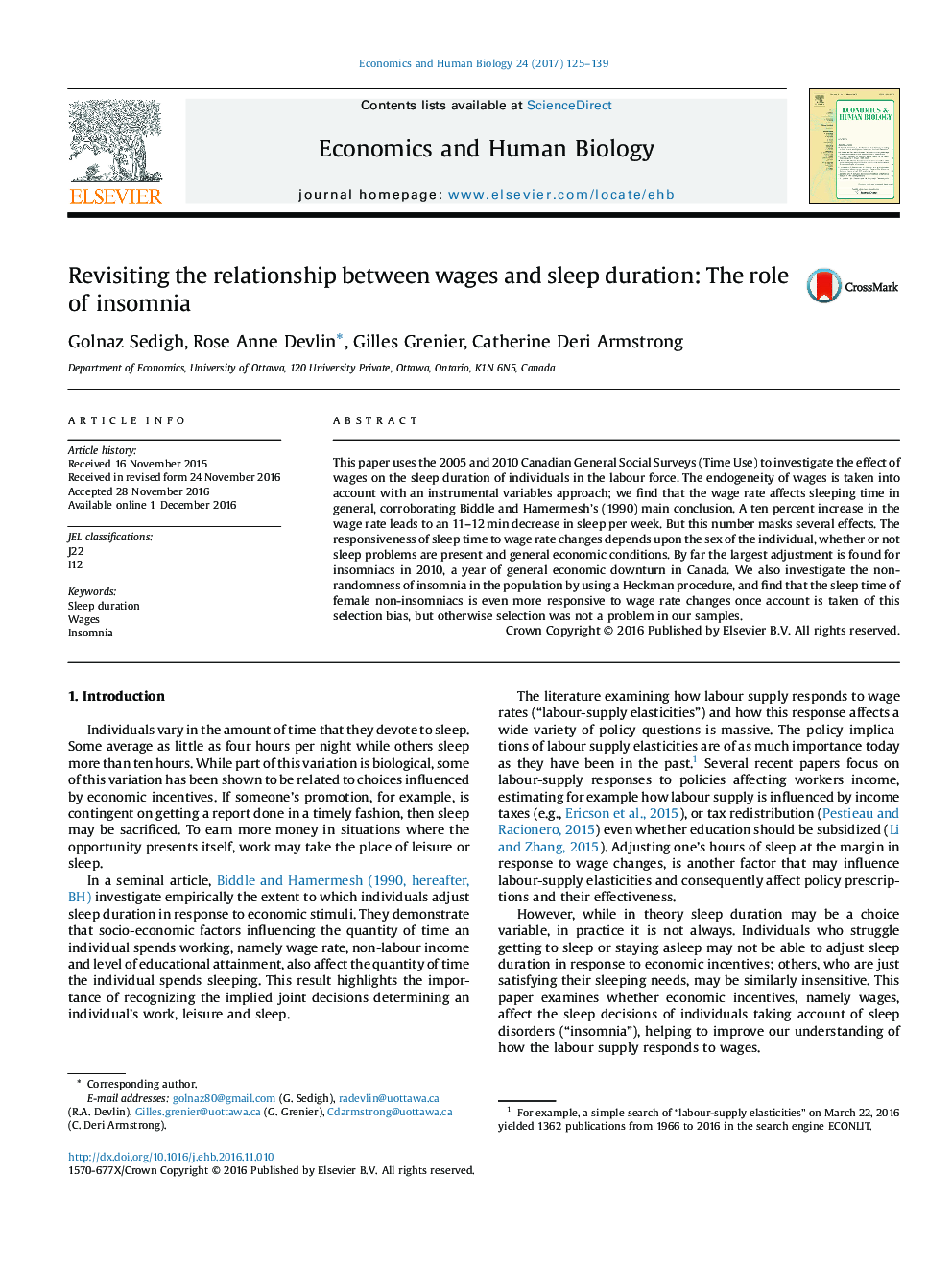| Article ID | Journal | Published Year | Pages | File Type |
|---|---|---|---|---|
| 5056794 | Economics & Human Biology | 2017 | 15 Pages |
â¢Workers reduce sleep time in response to wage rate increases.â¢Sleep time responses depend upon worker's sex, sleep problems, and economic context.â¢Male insomnaics are the most responsive to wage rate hikes in an economic downturn.â¢Sleep problems appear to be randomly distributed across the population of workers.
This paper uses the 2005 and 2010 Canadian General Social Surveys (Time Use) to investigate the effect of wages on the sleep duration of individuals in the labour force. The endogeneity of wages is taken into account with an instrumental variables approach; we find that the wage rate affects sleeping time in general, corroborating Biddle and Hamermesh's (1990) main conclusion. A ten percent increase in the wage rate leads to an 11-12Â min decrease in sleep per week. But this number masks several effects. The responsiveness of sleep time to wage rate changes depends upon the sex of the individual, whether or not sleep problems are present and general economic conditions. By far the largest adjustment is found for insomniacs in 2010, a year of general economic downturn in Canada. We also investigate the non-randomness of insomnia in the population by using a Heckman procedure, and find that the sleep time of female non-insomniacs is even more responsive to wage rate changes once account is taken of this selection bias, but otherwise selection was not a problem in our samples.
